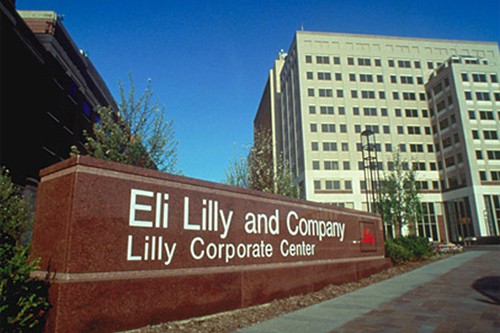
Eli Lilly’s new oncology drug Cyramza could add colorectal cancer (CRC) to its existing use in stomach cancer next year, based on the results of a phase III study.
Data from the RAISE trial of Cyramza (ramucirumab) showed that Lilly’s drug improved overall survival in CRC patients in combination with standard chemotherapy versus patients who used chemotherapy alone and had progressed despite earlier treatment with Roche’s Avastin (bevacizumab).
Lilly said it expects to initiate regulatory submissions for Cyramza in CRC in the first half of 2015 on the back of the trial results.
Cyramza is one of the top growth prospects in Lilly’s portfolio and was approved by the FDA in April as the first single agent treatment for patients with advanced stomach cancer as well as a rare malignancy called gastroesophageal junction adenocarcinoma.
The drug – which acts as an anti-vascular endothelial growth factor receptor-2 (VEGFR-2) antibody – was launched in the US a few weeks ago and is under regulatory review in Europe.
Lilly has not divulged early sales for the product but chief executive John Lechleiter said recently the drug has “launched to a good reception” and the company has been “pleased with the uptake we are seeing, with the reports we are receiving from the sales organization and with feedback from customers.” Analysts have predicted the drug could achieve sales of $1.3bn or more at peak across multiple cancer indications.
Lilly has already filed a marketing application in the US for Cyramza as a second-line combination treatment for gastric cancer on the strength of the recently-reported RAINBOW trial, and also added the data from the study to its filing in Europe.
There was also encouraging data from the REVEL study of ramucirumab alongside docetaxel as a second-line treatment for non-small cell lung cancer (NSCLC), showing an improvement in survival versus docetaxel alone, although the drug was unable to show a significant clinical benefit in a study in liver cancer reported earlier this year and a breast cancer trial unveiled in 2013.
Ramucirumab is one of two late-stage oncology drugs that could make a significant contribution to revenues at the company if they achieve their clinical objectives.
Lilly also has anti-epidermal growth factor receptor (EGFR) antibody necitumumab in late-stage development for NSCLC and is expecting to file in the US before the end of the year. Necitumumab has been granted fast-track status by the FDA. Both ramucirumab and necitumumab were acquired by Lilly when it took over ImClone Systems in 2008 for $6.5bn.
Meanwhile, moving rapidly through the pipeline is Lilly’s CDK 4/6 inhibitor abemaciclib, which will start phase III trials in advanced NSCLC and breast cancer later this year.




